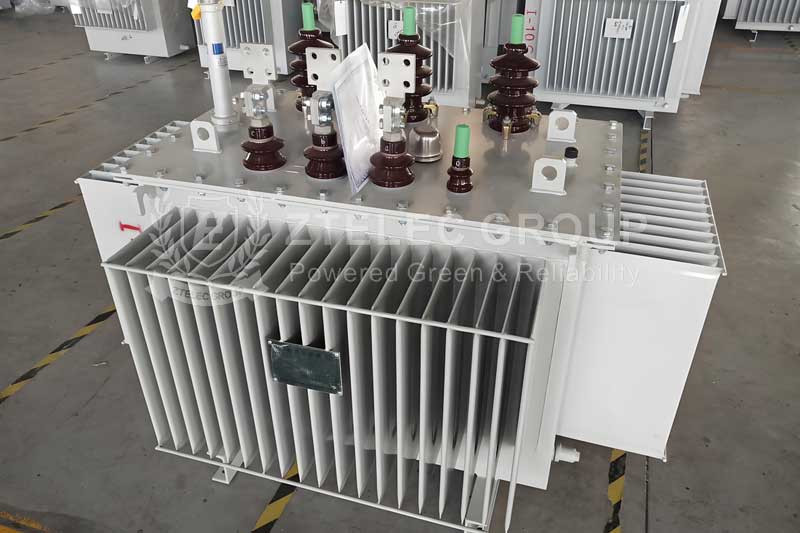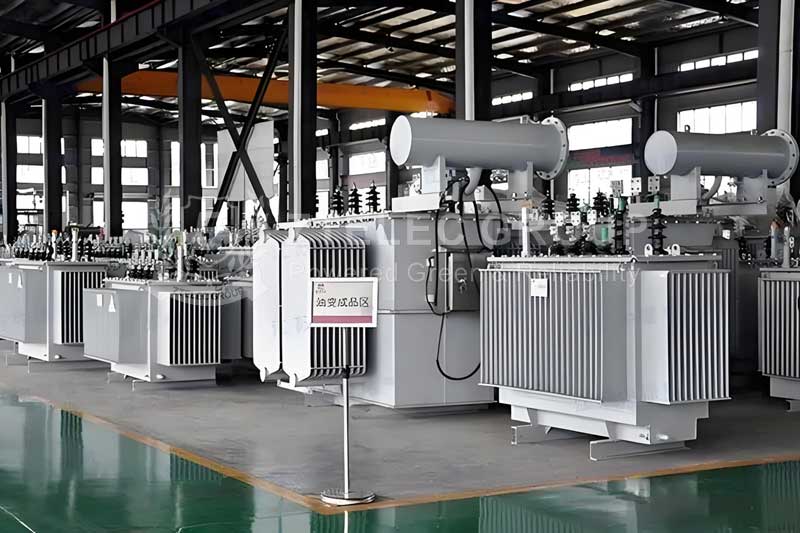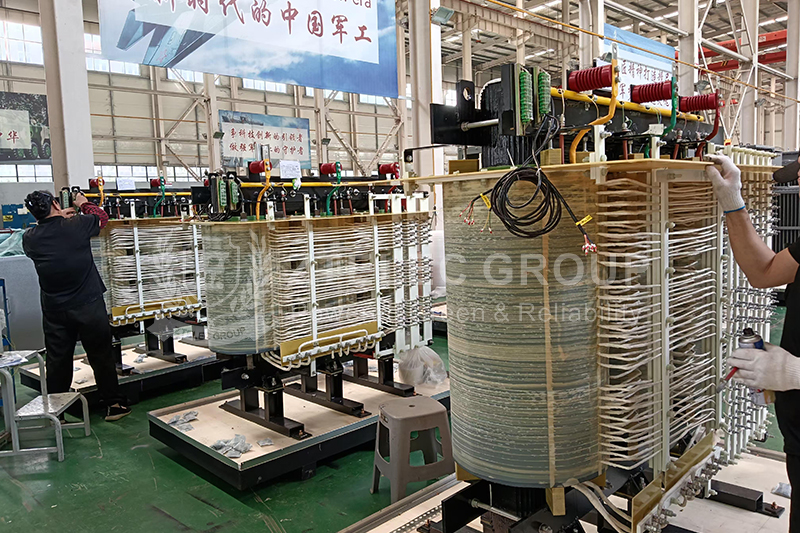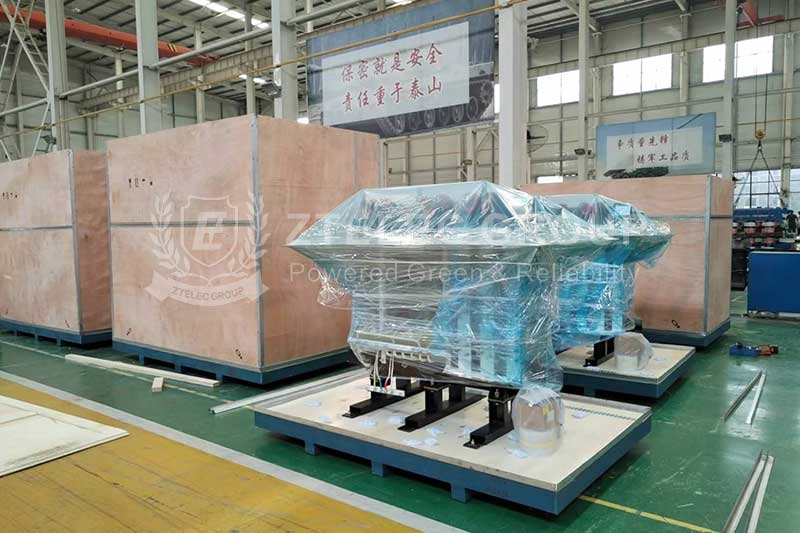Understanding the Role of Oil in Transformers
Transformers are a crucial component of power systems, primarily functioning to convert voltage for the efficient transmission of electrical energy. In these complex devices, oil plays a vital role. Transformer oil serves not only as an electrical insulating material but also has multiple functions, including cooling, guiding heat, and preventing oxidation. This article will delve into the composition, characteristics, and core role of transformer oil in transformers.
Ⅰ. What is transformer oil made of?
Transformer oil is typically made from high-purity mineral oil or synthetic oil. During manufacturing, impurities and unsaturated hydrocarbons are removed through refining to ensure the stability of its physical and chemical properties. Some modern transformers are also beginning to use vegetable oils, such as ester oils, as alternatives to enhance environmental friendliness and sustainability. Whether mineral or vegetable oil, transformer oil must possess good electrical insulating properties, thermal conductivity, and chemical stability.
Ⅱ. What are the characteristics of transformer oil?
1. Electrical Insulating Properties: Transformer oil has an extremely high resistivity, allowing it to effectively insulate high-voltage components and prevent short circuits and electrical leaks. Good insulation is a fundamental prerequisite for ensuring the safe operation of transformers.
2. Thermal Conductivity: During the operation of a transformer, significant heat is generated as current passes through the windings and core. The oil acts as a cooling medium, helping to transfer heat from the heat sources to the outside of the transformer, thus ensuring the equipment operates at normal working temperatures.
3. Chemical Stability: Transformer oil must exhibit good chemical stability to resist oxidation and decomposition. Over time and with varying operating conditions, the degradation of the oil could lead to a decline in its insulating properties; hence, selecting an appropriate oil is crucial.

Ⅲ. What are the functions of transformer oil?
1. Cooling Function: As mentioned earlier, transformers generate heat during operation. If heat is not dissipated in a timely manner, it could lead to the aging of insulating materials and damage to the transformer. Transformer oil plays a key role in the cooling system of the device. It removes heat through convection and conduction, ensuring that the transformer operates within a safe temperature range.
2. Insulating Function: The insulation function of transformer oil is one of the primary reasons for its existence. Under high voltage conditions, effective insulating materials are needed between conductors to prevent electrical faults. Transformer oil can prevent the occurrence of electric arcs and breakdowns, thereby protecting the integrity and performance of the transformer.
3. Corrosion Prevention Function: The internal metal components of transformers are susceptible to moisture and oxygen in the air, leading to oxidation and corrosion. Transformer oil forms a protective film that effectively isolates moisture and oxygen, thereby extending the lifespan of the equipment and maintaining the stability of the electrical devices.
4. Gas Emission and Monitoring: Transformer oil can also be used as a medium for monitoring the health status of transformers. Analyzing the gas composition in the oil can help identify whether there are faults or anomalies within the transformer. For instance, dissolved gases in the oil (such as hydrogen, methane, and acetylene) can reflect changes in temperature and pressure inside the transformer, providing early warnings of potential issues.

Ⅳ. Maintenance and Management of Transformer Oil
Maintaining transformer oil is crucial as it directly impacts the extension of the transformer's lifespan and the enhancement of operational safety. Regular chemical and physical property tests on oil samples can detect changes in oil quality in a timely manner. By analyzing indicators such as dissolved gas content, acid value, color, and specific gravity in the oil, it is possible to assess the health status of the transformer and the corrosiveness of the oil, ensuring the transformer operates properly.
On the other hand, changing transformer oil is also an important aspect of maintenance. When the oil deteriorates or becomes contaminated, it should be replaced promptly to prevent ongoing performance degradation. In addition, developing effective maintenance strategies and plans, along with routine checks and monitoring of oil conditions, can further enhance the safety and reliability of transformers.
Transformer oil plays an indispensable multi-functional role in transformer operation, covering cooling, insulation, and corrosion prevention. With advancements in technology, research and application of transformer oil are expected to develop in a more environmentally friendly and efficient direction in future power systems. A deep understanding and management of transformer oil will not only ensure the steady operation of power systems but also contribute to achieving sustainable development goals. In the power industry, maintaining focus on transformers and their oil will be the foundation for ensuring safe and stable power supply.
- more+releated article
- 2025-12-13G10 and FR4 Epoxy Boards: Commonly Used for Ge
- 2025-12-13Comparison of Heat-Resistant DDP Insulating Pa
- 2025-12-12Price of a 1600kVA 10kV Cast Resin Dry-Type Tr
- 2025-12-12How to Choose Epoxy Laminate Materials for Gen
- 2025-12-11Protection Configuration Principles for 35kV D
- 2025-12-11The Price of Heat-Resistant DDP Insulation Pap
- 2025-12-10Application Prospects of 10kV/35kV Oil-Immerse
- 2025-12-09How to Reduce the Maintenance Cost of Oil-Imme
- 2025-12-09How to Choose the Best 110 kV Oil-Immersed Pow
- 2025-12-08Heat-Resistant DDP Insulation Paper





